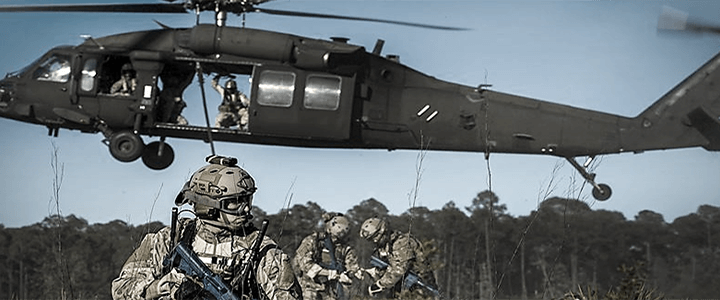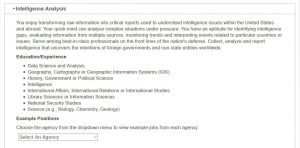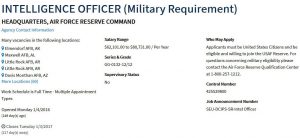Have you considered using your intelligence training and experience once out of the military? If so, you could pursue work in any of the 17 agencies within the Federal government intelligence community. They are:
- Office of the Director of National Intelligence (ODNI)
- Central Intelligence Agency (CIA)
- Defense Intelligence Agency (DIA)
- Federal Bureau of Investigation (FBI)
- National Geospatial-Intelligence Agency (NGA)
- National Reconnaissance Office
- National Security Agency (NSA)
- Department of Energy
- Department of Homeland Security
- Department of State
- Department of the Treasury
- Drug Enforcement Agency (DEA)
- And all five active duty branches of the military
At the helm, ODNI organizes and coordinates the intel efforts of the other 16 agencies.
For a transitioning military member having valid security clearance, getting a job in Federal service is not only a natural progression, but one that can get you credit for your military service. You’ll start out in a higher leave category, higher step in grade, retirement benefits and receive preferential hiring.
Regardless of your military job, the Federal government probably has a job you can fill. However, if your skill set includes working intelligence, your options expand exponentially.
Let’s take a look at one of the intel jobs. Drilling down to the Intelligence Analysis category on the Intelligence Careers page, we find the desired degrees and experience required for an Intelligence Analysis job.
Most government job openings list an education requirement and/or experience requirement in their job postings. In this case, having a bachelor’s degree in one of these fields, or even in a related field, and experience as Military Intel Analyst would certainly be a plus.
Veterans not having a degree, or the proper type required, could use their GI Bill first to acquire what they need and increase their chance of getting hired.
By selecting Show All from the Select An Agency drop-down menu, we see this type of job exists in the DIA, NGA, NSA and ODNI.
Now let’s jump over to USA JOBS and look at one of their intelligence job listings – Intelligence Specialist with the U.S. Army Reserve Command.
We see that it is a GG-12, which is the same as a GS-12, and is located in 65 different locations and open until January 3, 2017, meaning it is probably a new position within the command.
It is also different from other Federal civil service jobs in that it has a military membership requirement to it, meaning the person filling this position must also be a member of the U.S. Air Force Reserve. This is known as dual-hatting – working a military job on drill weekends and Annual Training, and a Federal civil service job during the week. For example, this would be a great job for a mid-grade (O3 or O4) Intel Officer wanting to get off active duty, yet maintain a military affiliation (for retirement purposes?) and get into Federal civil service.
Most of the Federal civil service jobs do not have a military requirement. And some jobs start out having the military requirement, but can be converted at some point to strictly civilian.
There are all kinds of possibilities working for the federal government. Intelligence is just one of the options. Many former service members enjoy the structure of Federal civil service because it is a familiar environment – similar to the military. If further service to your country interests you, consider working Federal service.




